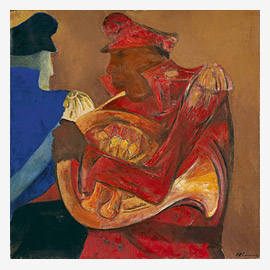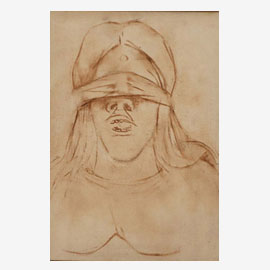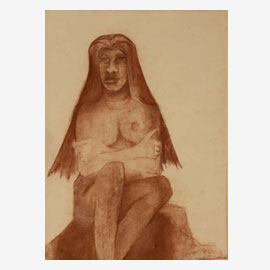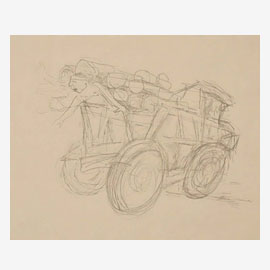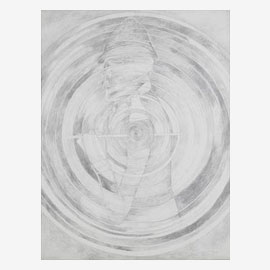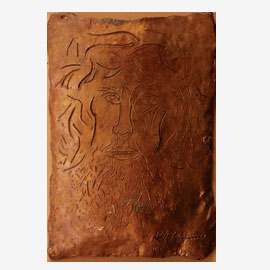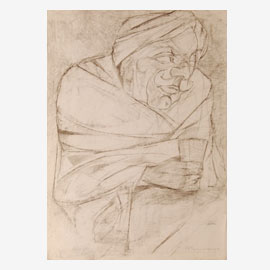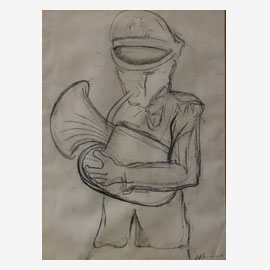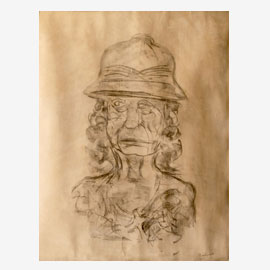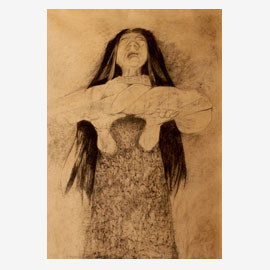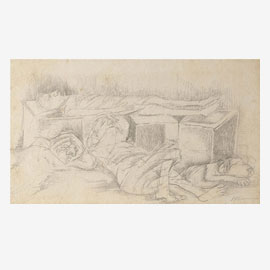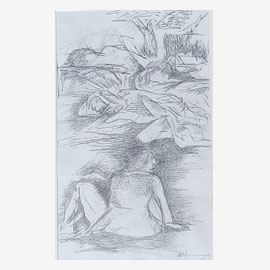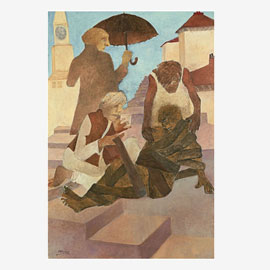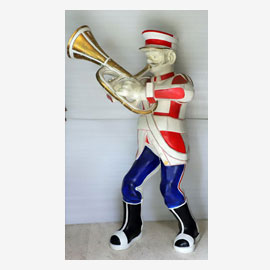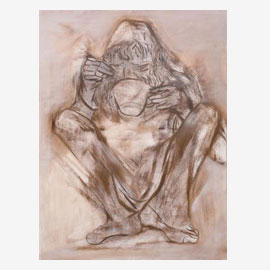Krishen Khanna was born in in 1925 in Lyallpur (now known as Faisalabad, Pakistan). A largely self-taught artist, he attended Imperial Service College in Windsor, England in 1940. The artist’s family shifted to India at the time of partition. He arrived in Bombay in 1948 where he began a career in banking. In Bombay, where he was invited to be a part of the now famous Progressive Artists’ Group. The first exhibition in which Khanna’s works were featured was one of the group’s exhibitions held in 1949. In 1955, he had his first solo show in Chennai and since then, he has been widely exhibiting in India and abroad.
One of the major turning points in Krishen Khanna’s life was the year 1961 when he left his 14 years of stint with banking to become a f...
Krishen Khanna was born in in 1925 in Lyallpur (now known as Faisalabad, Pakistan). A largely self-taught artist, he attended Imperial Service College in Windsor, England in 1940. The artist’s family shifted to India at the time of partition. He arrived in Bombay in 1948 where he began a career in banking. In Bombay, where he was invited to be a part of the now famous Progressive Artists’ Group. The first exhibition in which Khanna’s works were featured was one of the group’s exhibitions held in 1949. In 1955, he had his first solo show in Chennai and since then, he has been widely exhibiting in India and abroad.
One of the major turning points in Krishen Khanna’s life was the year 1961 when he left his 14 years of stint with banking to become a full-time artist. With a Rockefeller Fellowship, he travelled to Japan in 1962, where he created a body of works with ink on rice paper, inspired by an ancient form of Chinese calligraphy.
One of the most versatile modernists, Krishen Khanna is known for an artistic idiom that is structurally rooted in the aesthetics of European modernism but its subject matter takes direct inspiration from the harsh socio-political reality. Bereft of any mannered stance or attitudinising, his paintings have the directness of reportage. However, the familiar threshold is only to lure the viewer into a world of classical restraint and grace. There is a refinement of the soul in Krishan Khanna which makes his figures eloquent and retrieves their dignity on the canvas from the throes of a dehumanising reality.

